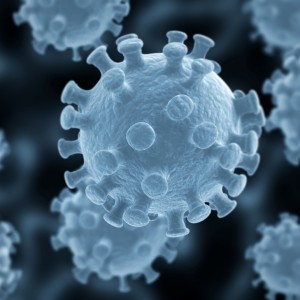 In a recent article entitled “Prevalence of Papillomaviruses, Polyomaviruses, and Herpesviruses in Triple-Negative and Inflammatory Breast Tumors from Algeria Compared with Other Types of Breast Cancer Tumors,” authors report an association of viruses with aggressive forms of breast cancers, namely inflammatory and triple-negative breast cancer. The study was published in the journal Plos One.
In a recent article entitled “Prevalence of Papillomaviruses, Polyomaviruses, and Herpesviruses in Triple-Negative and Inflammatory Breast Tumors from Algeria Compared with Other Types of Breast Cancer Tumors,” authors report an association of viruses with aggressive forms of breast cancers, namely inflammatory and triple-negative breast cancer. The study was published in the journal Plos One.
Breast cancer was diagnosed in 1.67 million women in 2012 alone, representing the second most common cancer in the world. Notably, breast cancers have been associated with viruses, with estimates of 15 to 20% according to the International Agency for Research on Cancer (IARC). While the best studied viral role in breast cancer are mouse mammary tumor virus-like sequences (MMTV-LS), Epstein-Barr virus (EBV) and human papillomavirus (HPV) recent recommendations highlighted the need for further studies to strengthen the preliminary data relating viral agents and breast cancer.
In this study, the authors determined if viruses increase the risk for specific subtypes of breast cancer. Their study focused on breast cancer occurring in developing countries, since the onset of viruses is markedly higher than in industrialized countries, specifically in Africa: while in Africa 40% of breast cancers are estimated to have a viral origin, this is true for only 7% of cases in Europe.
[adrotate group=”3″]
The authors studied specific aggressive groups of breast cancer (BC) – Inflammatory BC (IBC) and triple-negative BC (negative for estrogen receptor, progesterone receptor and human epidermal growth factor receptor 2) — both highly represented in African countries.
The team collected samples from Algeria (samples from 155 patients) and determined the viral content in both inflammatory BC and non-inflammatory BC (control), and in triple-negative and non-triple-negative BC tumors (control). The authors determined the viral DNA from 61 viruses (46 human papillomaviruses, 10 polyomaviruses, and 5 herpesviruses) with a genotyping assay of high sensitivity.
The team discovered that oncogenic viruses are specifically enriched in samples from IBC and triple-negative BC patients, particularly EBV (this was actually the most common detected virus) and HPV, despite the low detection of viral DNA (found only 17.9% of the samples).
In conclusion, the authors’ results suggest a correlation between viral DNA and aggressive breast cancer subtypes (IBC, triple-negative) highlighting that, despite preliminary data, viral etiology should be addressed in these types of cancers.

